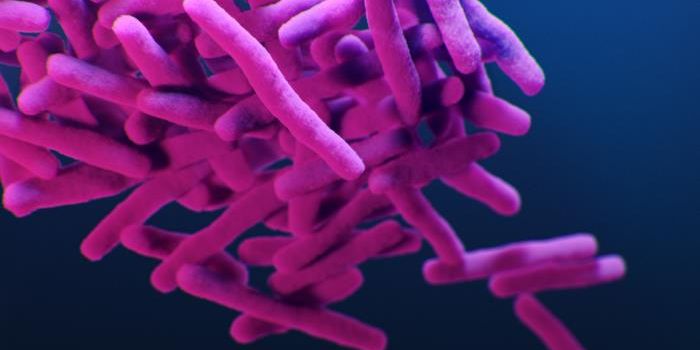Fusobacteria are a type of bacteria that may worsen colon cancer. A new study from the Harvard T.H. Chan School of Public Health identified a sugar-binding protein that helps these bacteria stick to colon polyps and tumors.
Fusobacteria are anaerobic, Gram-negative bacteria that usually reside in the mouth where they often cause periodontal disease. Curiously, fusobacteria are also enriched around colon tumors.
The Harvard group found that fusobacteria use a lectin called Fap2 to bind to Gal-GalNAc, a sugar that is highly expressed on colon cancer cells. The researchers knew that the presence of Gal-GalNAc could keep fusobacteria from binding to human erythrocytes. They reasoned that the bacteria liked to attach themselves to this particular sugar more than they liked attaching to the erythrocytes. Since GalNAc is expressed on colon cancer cells, they tested whether this was the reason why fusobacteria are often found associated with colon tumors.
In one notable experiment, they showed that, in a mouse model, blood-borne fusobacteria preferentially colonized colorectal tumors. After injecting bacteria into the tail vein, they found that more fusobacteria attached to colorectal tumor tissue, which expressed high levels of Gal-GalNAc, compared to nearby normal tissue.
Next, they tested whether this preferential colonization depended on the presence of the bacterial lectin Fap2. They repeated the same experiment, injecting mice with either Fap2-expressing fusobacteria or Fap2-inactivated fusobacteria. There were significantly fewer Fap2-inactivated bacteria associated with the colorectal tumors, suggesting that tumor-colonization is dependent on Fap2.
These findings present researchers with the opportunity to devise new cancer treatments. According to study author Wendy Garrett, “alternatively, and perhaps more importantly, our findings suggest that drugs targeting the same or similar mechanisms of bacterial sugar-binding proteins could potentially prevent these bacteria from exacerbating colorectal cancer”.
Last, but not least, a report from 2013 by researchers at Case Western Reserve University helped explain why fusobacteria seem to promote the growth of colon cancer. The fusobacterial adhesin FadA binds to E-cadherin on cancer cells. This induces the beta-catenin signaling pathway, promoting cancer cell growth.
Sources: Cell Host & Microbe (Abed),
EurekAlert,
Cell Host & Microbe (Rubinstein)









